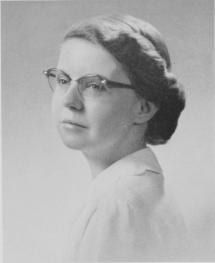Abstract
In part 1 of this interview, Alison Palmer discusses her childhood, her decision to attend Pembroke College, and the Pembroke experience.
In part 2 she discusses hazing at Pembroke, her summers while at college, working in New York City, her original interest in the State Department, and her time in Ghana.
In part 3, Palmer talks about her time in the Belgian Congo.
In part 4, she discusses her deployment to British Guyana, gender discrimination, and her decision to volunteer for Vietnam.
In part 5, she discusses her opposition to some of the tactics used in Vietnam.
In part 6, Palmer recallsreturning to the US after her service, and the decision to enter the Episcopal priesthood.
In part 7, she discusses simultaneously getting assigned to conferences in Geneva and England by the State Department.
In part 8, she talks about her experiences with the priesthood.
In part 9, she talks about gender discrimination within the Diocese of Washington, D.C.
In part 10, Palmer outlines why she chose the Episcopal Church, seeing women in the clergy, clothing in church, and the beginning of the discrimination lawsuit with the State Department.
In part 11, she talks about her interactions with Henry Kissinger, who was Secretary of State at the time.
In part 12, Palmer goes on to discuss sexual harassment from supervisors in the State Department.
In part 13, she discusses policing within the State Department and the Iranian hostage situation.
In part 14, she discusses the Bureau of International Organizations and dissent on foreign policy.
In part 15, Palmer concludes her interview by describing the class action suit filed against the State Department.
Part 1
Part 2
Part 3
Part 4
Part 5
Part 6
Part 7
Part 8
Part 9
Part 10
Part 11
Part 12
Part 13
Part 14
Part 15
Recorded on June 14, 1988 in Cape Cod, MA
Interviewed by Karen Lamoree
Suggested Chicago style citation: Palmer, Alison. Interview. By Karen Lamoree. Pembroke Center Oral History Project, Brown University. June 14, 1988.
Biography
Alison Palmer grew up in Wollaston, Massachusetts with her two siblings, David and Lois. She and her family moved to Long Island in 1940. With some hesitancy, Palmer decided to enroll at Pembroke College, her mother’s alma mater. After graduating in 1953 with an A.B. in English literature, she went to work at the Christian Science Monitor and the New York Times before deciding she wanted to work for the State Department. Palmer cites her time in Vietnam as the only period in which she did not face gender discrimination from the State Department. She turned to priesthood in the Episcopal Church in 1970 and became the first female deacon in the Diocese of Washington, D.C. The State Department then assigned her to conferences in England and Geneva several times a year. She worked with other female-led Dioceses to minimize gender discrimination. Palmer filed an official complaint for gender discrimination at the State Department in 1968 and 1971, producing the first Equal Employment Opportunity hearing at the State Department. The State Department was found guilty of strong discrimination and Palmer exposed them publicly on talk shows around the country. She started a class action lawsuit in 1976 and got 75 women appointed to the State Department who were turned away beforehand due to sexist policies. Palmer then worked on diffusing the Iranian hostage situation and changing the State Department’s policies on hostages. She worked in the Bureau of African Affairs and saw the State Department setting up a Women’s Action Organization.
